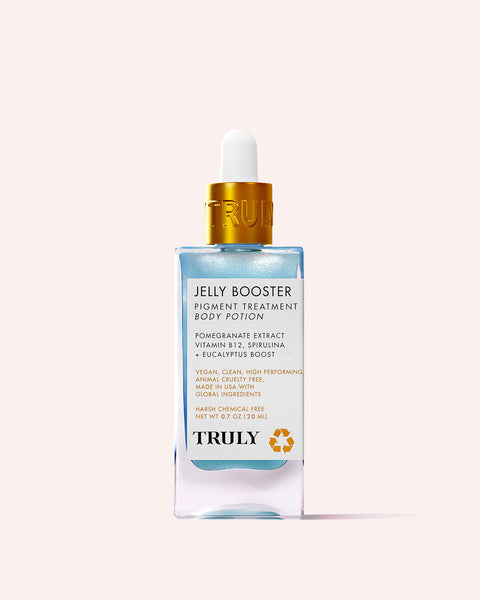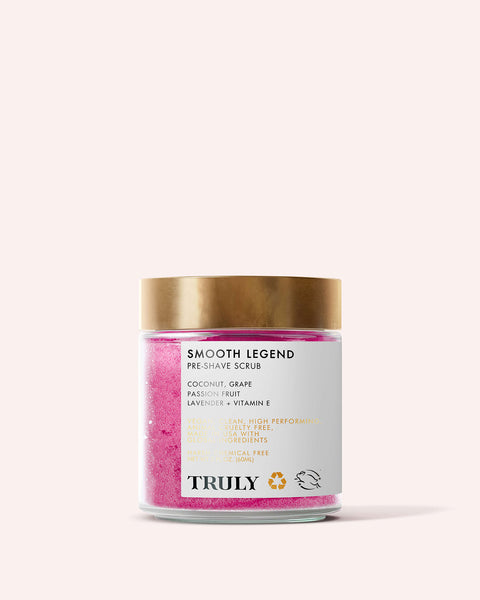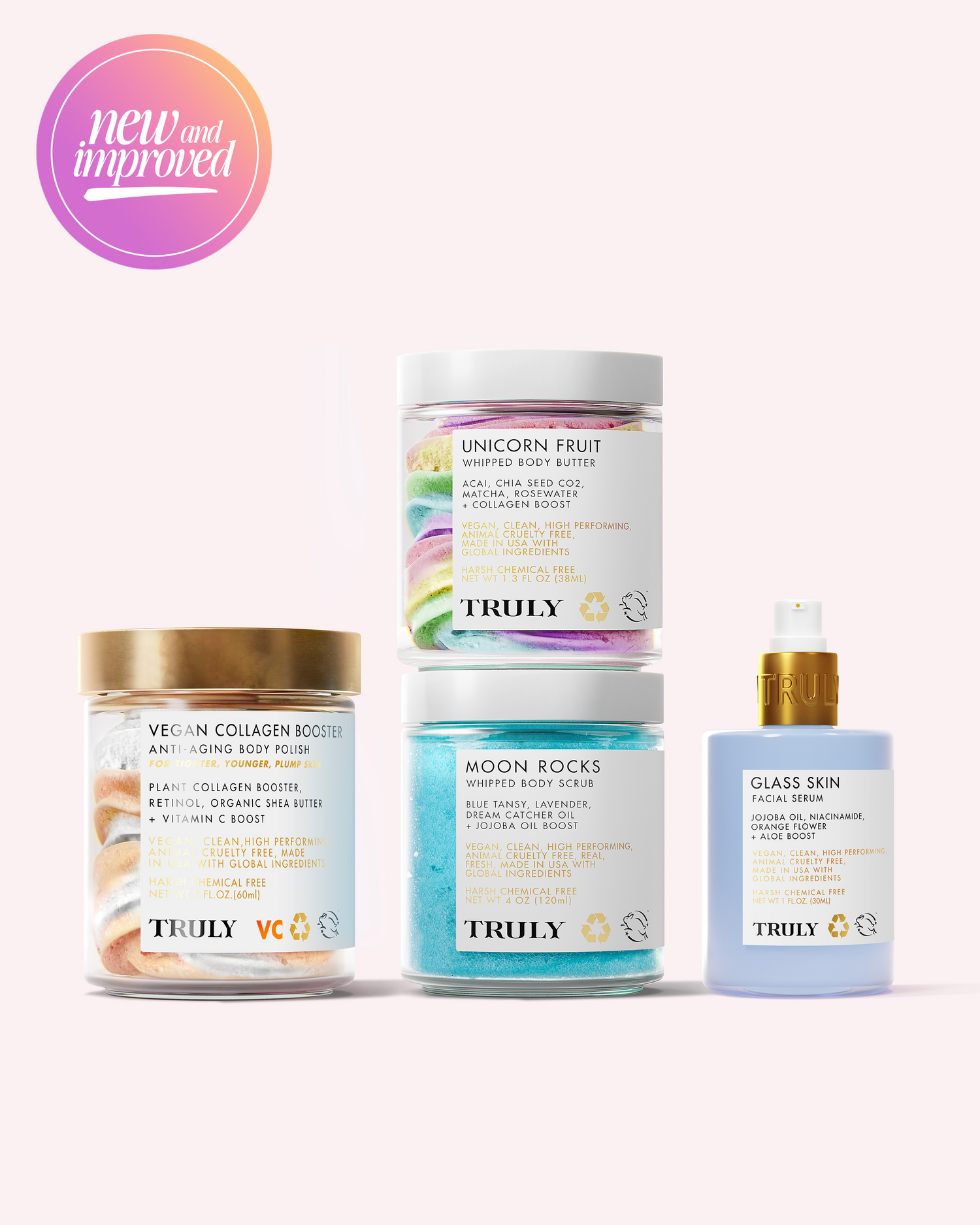Can You Use Vitamin C With Retinol?

Each offers incredible benefits, but can you use vitamin C with retinol? Both vitamin C and retinol help with everything from boosting collagen production to increasing cell turnover.
With so many magical abilities, you’d think combining retinol and vitamin C would only enhance those effects. The question is, can you use retinol and vitamin C together? Here’s what you should know.
What is Vitamin C?
Vitamin C is a potent antioxidant that neutralizes free radicals, helping to protect and defend skin against external aggressors like UV rays and pollution. In turn, it prevents the formation of fine lines and age spots. Additionally, vitamin C helps with the skin’s regenerative process. Thanks to its antioxidant effects, it helps to improve skin tone and texture, fading dark spots and brightening dull skin.
What is Retinol?
Retinol is a derivative of vitamin A that’s commonly used to treat visible signs of aging. It works to renew skin cells, increase collagen production, and boost elasticity–plumping up the skin’s deeper layers to soften fine lines, minimize pores, and firm the skin. By encouraging healthier cells to reach the skin layer, retinol promotes a smoother, more youthful-looking complexion. Its cell renewal abilities also help to combat acne by keeping the pores clear.
Can You Use Vitamin C With Retinol?
Most dermatologists agree that there’s no problem using retinol and vitamin C together. In fact, this combo can be a total power couple when it comes to maintaining youthful, radiant skin. Using vitamin C and retinol together in your skincare routine can help address a number of skin concerns including fine lines, wrinkles, hyperpigmentation, and acne. They’re the dream team for aging well.
Can you use retinol and vitamin C together? Absolutely. While vitamin C neutralizes free radicals, retinol helps the skin to shed potentially pre-cancerous skin cells. In other words, they’re extremely complementary.
If you have normal, oily, or acne-prone skin, it’s fine to layer retinol and vitamin C. For those with dry or sensitive skin, it’s best to use vitamin C in the morning and retinol in the evening. This way, you’ll avoid any side effects like redness, flaking, and dryness.
Generally, you shouldn’t have any issues when pairing vitamin C with retinol. Especially if both products contain low concentrations of these active ingredients. However, if you already have sensitive skin, it’s better to apply them at different times of the day to reduce the risk of irritation.
Best Retinol and Vitamin C Skincare
Truly’s Vegan Collagen Booster Set
SHOP NOW
Get your daily dose of vitamin C and retinol with Truly’s Vegan Collagen Booster Set: You get: a facial cleanser, mask, and serum, plus a body polish and cream—all packed with vitamin C, retinol, and plant collagen booster. It’s the ultimate face and body anti-aging routine to get you smoother, firmer, and brighter from head to toe.
Benefits of Combining Retinol and Vitamin C
Can you use vitamin C with retinol? You certainly can. Using retinol and vitamin C together can, in fact, boost each other’s benefits, resulting in smoother, brighter skin. Vitamin C defends and protects while retinol speeds cell turnover and boosts collagen. Together, they both reduce the appearance of fine lines and wrinkles while reducing pigmentation and combating acne. Here are all the benefits of using retinol and vitamin C.
1. Firmer, Smoother Skin
One of the biggest benefits of pairing retinol and vitamin C is their ability to supercharge collagen production. Collagen is the structural protein responsible for maintaining the skin’s firmness and elasticity. Retinol encourages collagen synthesis, while vitamin C protects existing collagen from degradation due to free radicals. Together, they can help smooth out wrinkles and increase skin’s firmness.
2. Improved Skin Tone
Dealing with dark spots or uneven skin tone? Vitamin C is renowned for its skin-brightening properties. It inhibits the production of excess melanin, the pigment responsible for dark spots, and helps to fade existing discoloration. Meanwhile, retinol promotes skin cell turnover, helping to reduce the appearance of dark spots. Ultimately, vitamin C and retinol are the perfect combo for achieving a more even complexion.
3. Powerful Antioxidant Protection
Being the powerful antioxidant it is, Vitamin C is your skin's first line of defense against external aggressors. It neutralizes harmful free radicals that can accelerate the aging process and cause skin damage. Retinol, conversely, helps repair existing damage and strengthens the skin’s natural barrier.
4. Smaller Pores
Can you use vitamin C with retinol to treat large pores? Indeed, you can. In fact, you should. Vitamin C helps tighten the skin and reduce the appearance of pores while retinol stimulates cell turnover, promoting the shedding of dead skin cells and the growth of new ones. Together, they can help minimize the appearance of pores.
5. Enhanced Product Absorption
Using retinol with vitamin C not only improves your skin’s appearance but also enhances the absorption of other skincare products. When used together, they shed old cells and make way for new ones, enabling other active ingredients to better penetrate the skin.
Shop Our Retinol Vitamin C Serum
Truly's Vegan Collagen Booster Facial Serum
SHOP NOW
Recharge your skin with this anti-aging serum formulated with retinol, vitamin C, and plant collagen booster. Together, these skin elixirs work to soften lines, firm skin, and fade dark spots.
How to Use Retinol and Vitamin C Together
According to dermatologists, vitamin C is best used in the morning and retinol is best used in the evening. In the morning, apply a small amount of your vitamin C serum to clean, dry skin and follow up with a broad spectrum sunscreen. In the evening, apply a small amount of retinol to clean, dry skin. If you have dry or sensitive skin, layer it with a hydrating moisturizer.
Can you use vitamin C with retinol? You can use skincare products that contain both retinol and vitamin C. You can also apply a vitamin C serum followed by a retinol serum. However, you should know that retinol can increase skin’s sensitivity to the sun, which is why it may be best to use it in the evening.
Can You Use Retinol and Vitamin C Together?
Retinol and vitamin C can be an excellent ingredient combination in your skincare regimen. If you’re looking to address skin concerns like dark spots, fine lines, dull skin, and acne, vitamin C and retinol is your go-to duo. Can you use vitamin C with retinol? You can indeed use them both together.
That being said, it’s important to pay attention to how your skin responds when using them together. If you experience any irritation, begin using vitamin C in the morning and retinol at night.
Watch our anti-aging tutorial featuring Truly's retinol and vitamin C skincare products:











